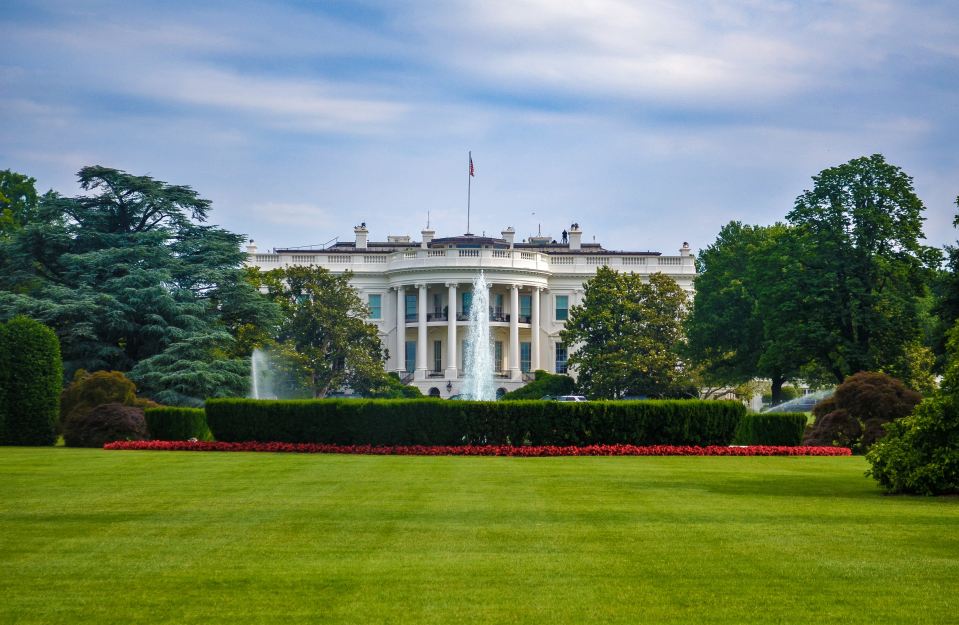
Igniting Change Under Smoky Skies: The White House Rally Amplifying Climate Urgency

On a hazy day tinted with the remnants of distant wildfires, hundreds of protesters, clad with both determination and N95 masks, assembled to protest against fossil fuel development at the White House on June 8, 2023.
The rally, organised by People vs Fossil Fuels, was an expression of frustration and demand, targeting President Biden’s apparent dichotomy between proclaimed climate commitment and continued fossil fuel project approvals, including the contentious Mountain Valley pipeline and Willow Project.
Reclaiming the Climate Legacy Amidst Complications
The core of the protest was an insistent plea for President Biden to “reclaim his climate legacy. The Mountain Valley Pipeline, a 300-mile conduit intended to transport fracked gas from West Virginia to southern Virginia, symbolised the discord between grassroots environmental advocacy and bureaucratic decisions.
Despite years of legal entanglements and resistance from grassroots groups and landowners, the pipeline was fast-tracked, deemed “required in the national interest” via a Congressional deal meant to bolster the US’s debt ceiling, and thereby shielded from further judicial scrutiny.
Amidst the echoes of protest, Biden found himself in a crucible of expectation and critique. While the administration took commendable strides in shaping a climate-responsive policy framework, approvals of new oil and gas drilling leases, notably more than those during the Trump administration, served as a stark contradiction to his image as a “climate President.
The Crucial Nexus: Activism and Corporate Repetitional Impact
This rally not only reverberated through political corridors but significantly reinforced the demands of entities associated with the focal fossil fuel projects, namely the Mountain Valley Pipeline Project and Willow Project, involving EQM Midstream Partners, NextEra Energy, Con Edison Transmission, Inc, RGC Midstream, WGL Midstream, and ConocoPhillips, respectively.
Navigating the tumultuous waters of public dissent and maintaining a cohesive corporate image, particularly when entangled in environmentally and socially sensitive projects, requires an adept understanding of the underlying currents of activist movements, policy landscapes, and public sentiment.
SIGWATCH: A Beacon Through the Activist Storm
In such an environment, a platform like SIGWATCH can provide invaluable foresight and insights to corporations, enabling them to not only comprehend but adeptly navigate the multifaceted and often complex interplay between activism, corporate reputation, and policymaking.
With granular data on activist campaigns, targeted issues, and emerging advocacy trends, SIGWATCH could have offered a forward-looking lens to the corporations involved in these projects, potentially identifying burgeoning activist campaigns and providing a temporal advantage to formulate responsive, informed and inclusive strategies that make sense to all.
Towards a Confluence of Advocacy, Policy, and Corporate Strategy
Corporations, especially those tethered to contentious projects, can utilise these insights to shape strategies and narratives that do not merely react to but anticipate and align with socio-environmental paradigms, legally binding commitments and desirable climate outcomes.
Engaging in proactive dialogues transparently, and collaborating with activist entities could ameliorate the impacts and forge pathways towards more sustainable, socially consonant operational frameworks.
Ultimately, the past rally at the White House stands as a testament to the intensifying urgency of the climate conversation, intertwining political, social, and corporate narratives to demand not only attentive observation but engaged collaborative action.